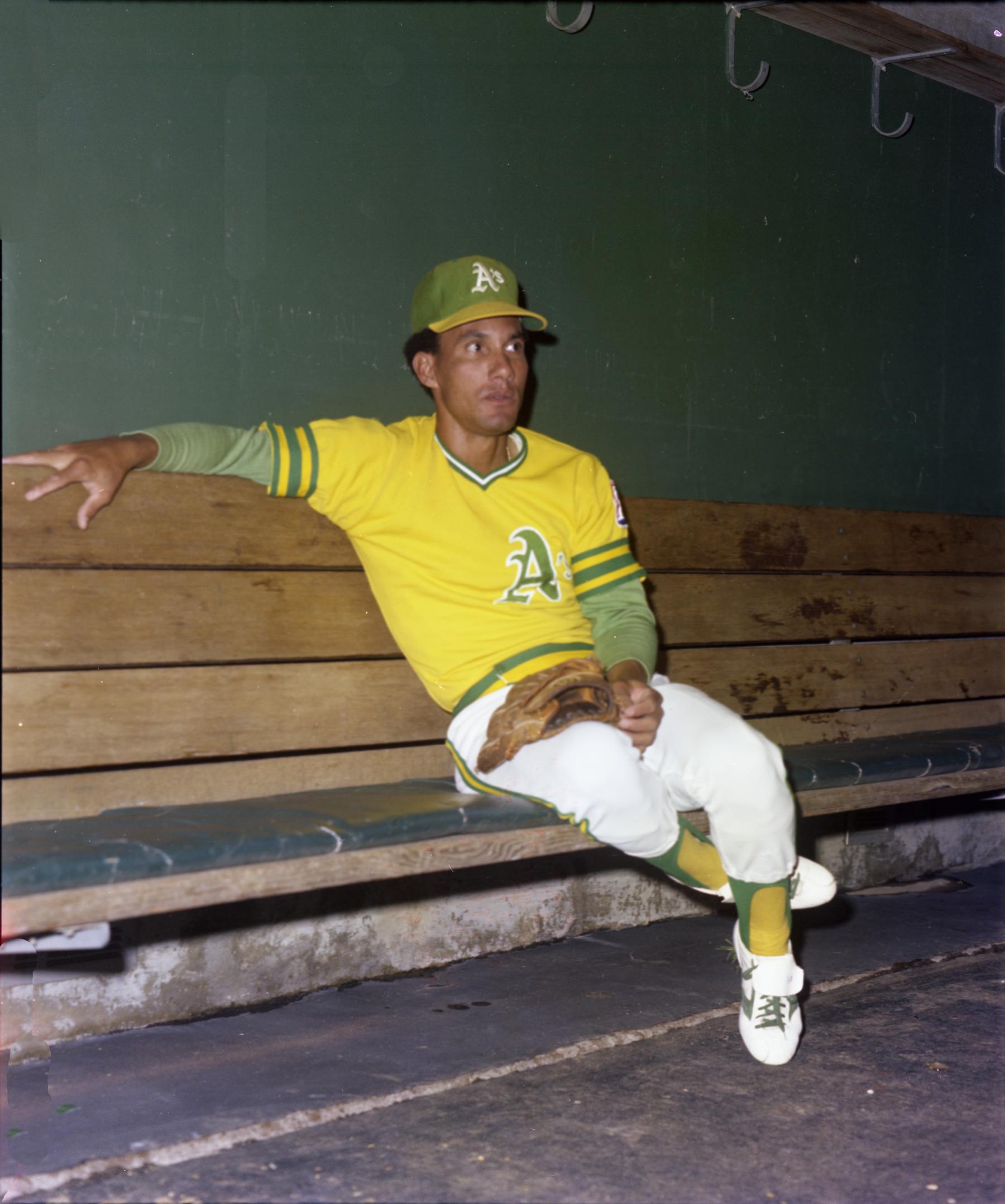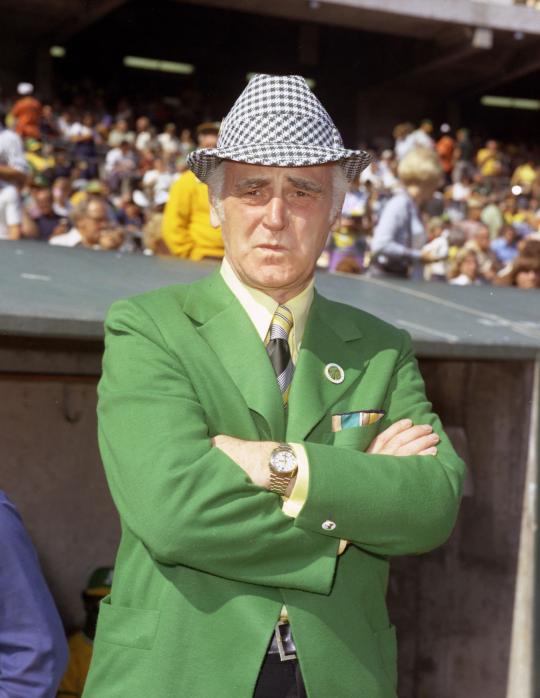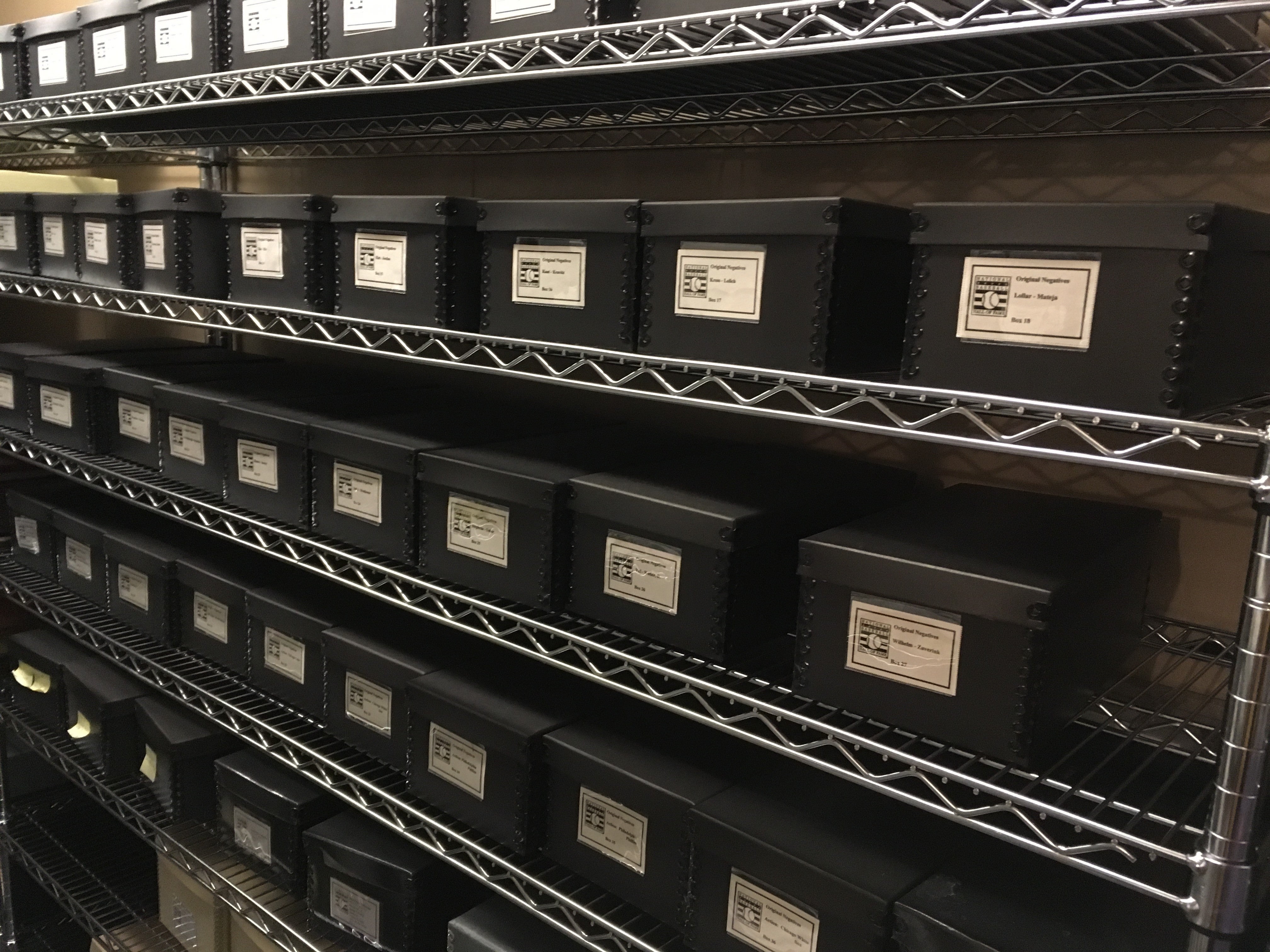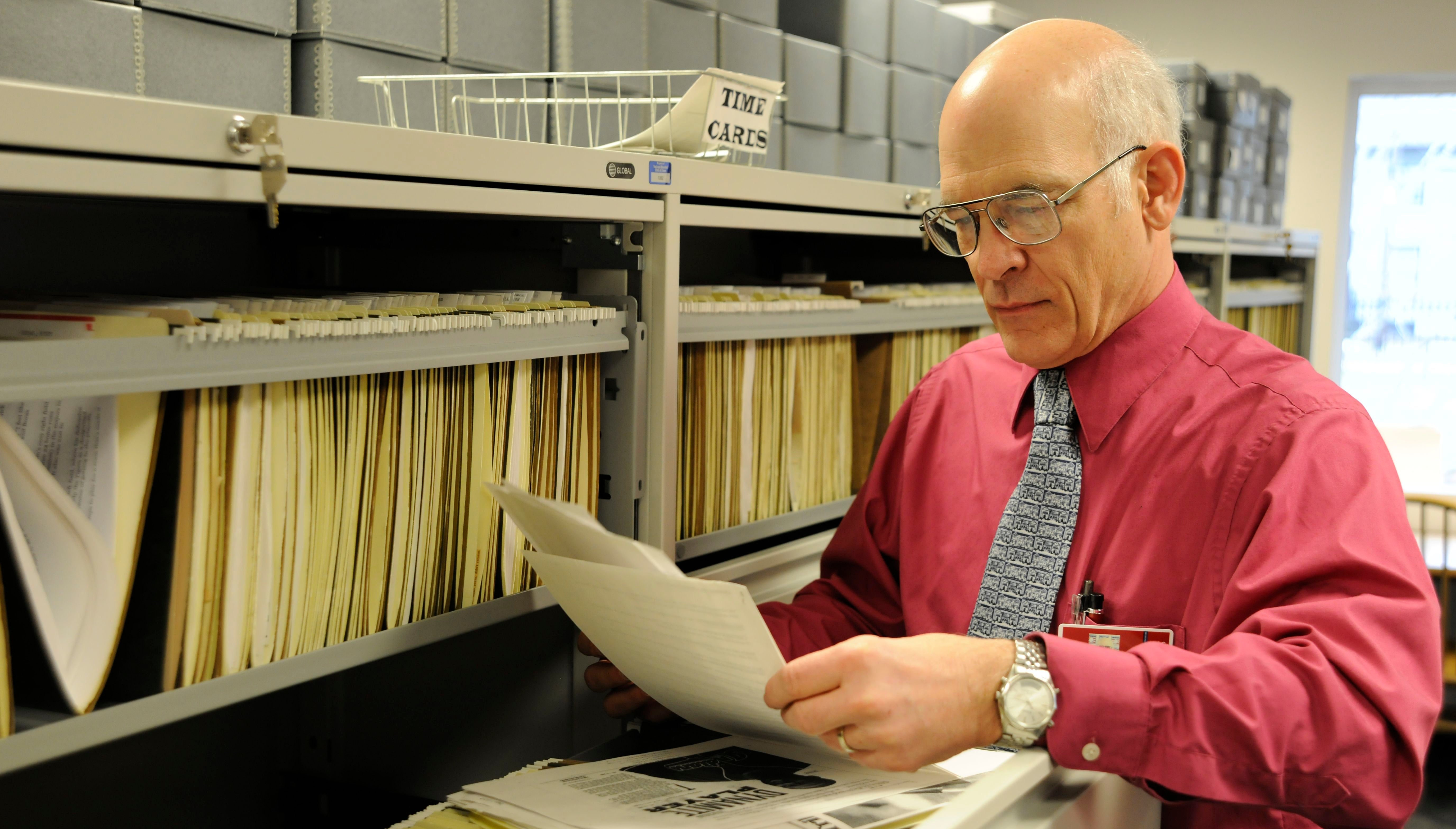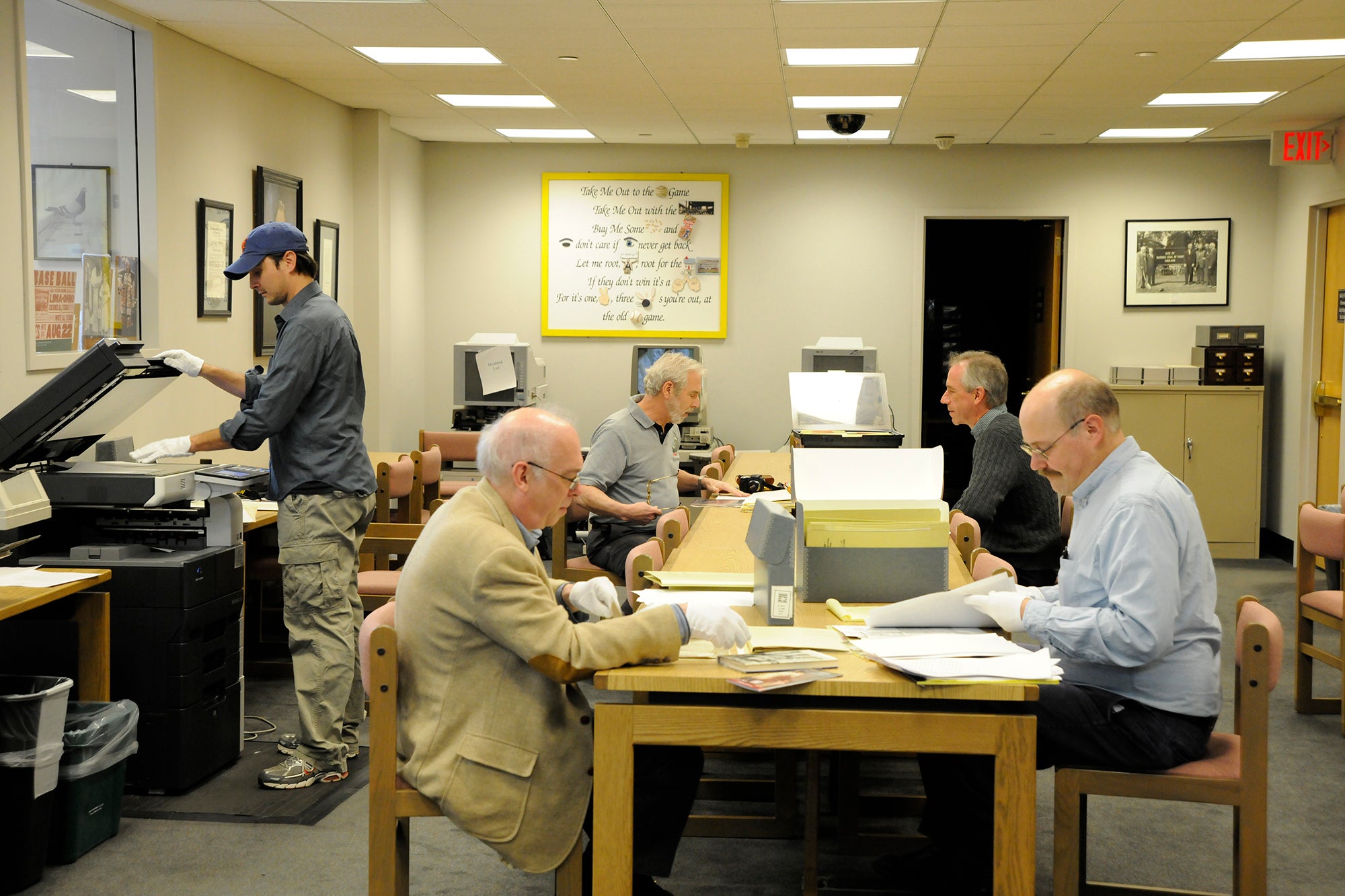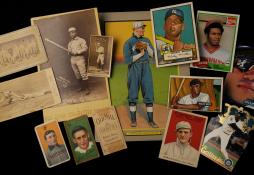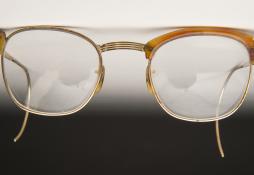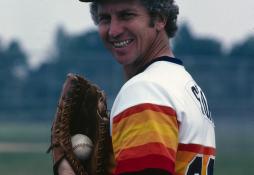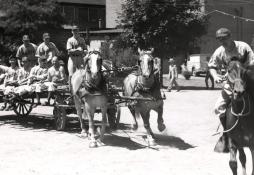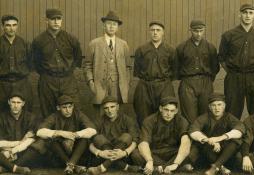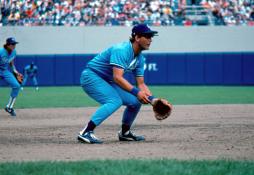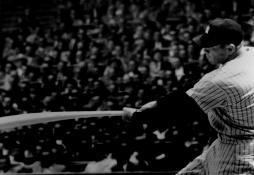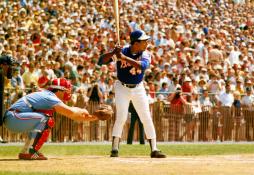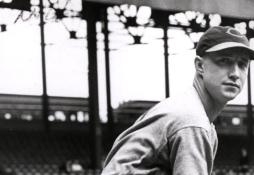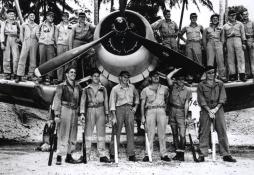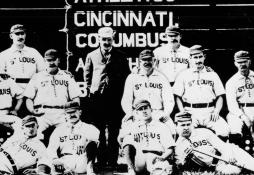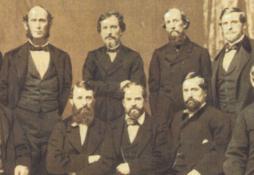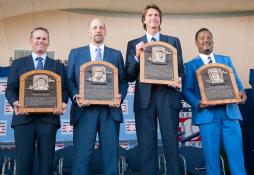- Home
- Our Stories
- Last Day in the Dugout
Last Day in the Dugout
While it might look glamorous from the safe distance provided by a television screen, the dugout can be a dirty place. Even a quick glance at the floor in in this 1976 photograph shows us just how grimy and soiled a dugout can look, with stained layers of dirt, mud, tobacco, and the various remnants of previous games. As offices go, the dugout is not the most pleasant place to be found.
The dugout can be a lonely location, too, particularly in the long hours before a game. For Bert Campaneris, the Oakland Coliseum dugout must have felt particularly solitary, perhaps even forlorn, on the day this photograph was taken by longtime Topps photographer Doug McWilliams. This was the day that Campaneris wore the uniform colors of the Oakland A’s for the final time; they were the only franchise he had known since departing Cuba 15 years earlier.
With some players, they never realize that their tenure with a club is ending, only to be stunned by an unexpected trade during the winter. That was not the case with Campy; he knew that the end had come in Oakland. After a decision made by arbitrator Peter Seitz one year prior that had effectively ended the reserve clause – and a subsequent agreement between players and owners – free agency had come to baseball. With their contracts expiring at the end of the season, Campaneris and seven of his A’s teammates (including future Hall of Famer Rollie Fingers and standouts Sal Bando and Don Baylor) were about to become free agents. Owner Charlie Finley, claiming financial limitations, had made it clear he would not bid for any of his veteran players.
For Campaneris, the feelings regarding impending free agency must have been mixed. On the one hand, he realized that he would be heading toward a rich pay day. But there is a palpable sadness in this photograph. Campaneris seems to be contemplating the end of a long and mostly happy relationship with the A’s. Generally a shy and quiet sort, he was one of the few players who liked Finley. The owner’s relationship with Campy was different. They liked and trusted one another, to the point that some believed Campaneris was a trusted advisor to Finley.
Campy had plenty of reason to like his on-field experience in Oakland, too. The linchpin to the A’s’ middle infield, Campaneris had helped steer the franchise to three consecutive world championships and five division titles over the first half of the 1970s. On a team where the second base situation had all the stability of a hotel’s revolving door, Campaneris provided rock-solid steadiness at shortstop. With six stolen base crowns and six All-Star Game selections, Campy had done more than his fair share in elevating the A’s from American League also-rans to a legitimate dynasty.
After departing the Bay Area, Campaneris indeed found new riches in free agency, signing a contract with the Texas Rangers, but he found team success elusive, never again returning to the World Series. Sadly, those halcyon days in Oakland, where Campaneris had made a name for himself, had come to an inglorious end on that lonely, desolate dugout bench.
Bruce Markusen is the manager of digital and outreach learning at the National Baseball Hall of Fame and Museum
Reproductions
The National Baseball Hall of Fame and Museum features a collection of nearly 250,000 photographs like this one. Reproductions are available for purchase. To purchase a reprint of this photograph or others from the Photo Archive collections, please call (607) 547-0375 or email jhorne@baseballhall.org. Hall of Fame members receive a 10-percent discount.

